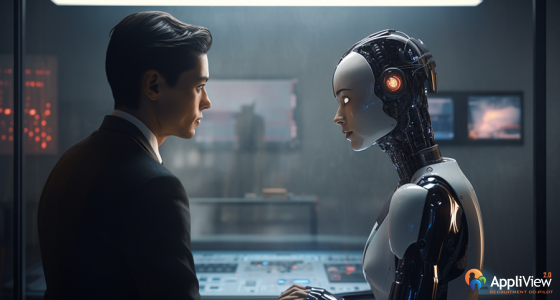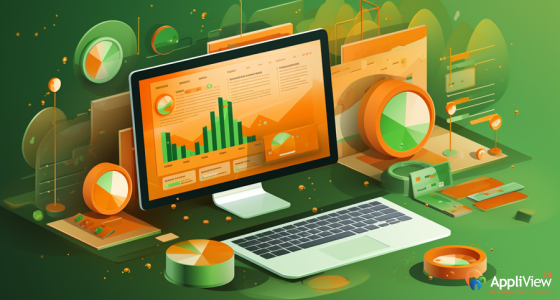Challenges in AI-driven Recruitment: Myths vs. Reality
October 17, 2023

AI-driven recruitment has the potential to revolutionize the hiring process, but it must be balanced with human involvement and human touch. Misconceptions include AI replacing human recruiters, AI completely eliminating bias, and AI predicting perfect candidates. However, AI can aid in resume screening and initial candidate evaluation, but it cannot predict long-term success or cultural fit. Challenges include data quality, algorithm bias, and candidate experience. To overcome these, companies should invest in data quality and diversity, ensure ethical AI, create a positive candidate experience, analyze the long-term benefits of AI adoption, and provide recruiters with training and upskilling. To realize the maximum potential of AI in recruitment, organizations must overcome obstacles such as data quality, algorithm bias, and candidate experience. Success stories demonstrate the strategic application of AI in recruitment.
Challenges in AI-driven Recruitment: Myths vs. Reality
In the ever-changing talent acquisition landscape, AI-driven recruitment has emerged as a game-changer. It promises to streamline and improve the recruiting procedure, making it more effective and efficient. However, as with any emerging technology, AI in recruitment is surrounded by fallacies and misconceptions. In this blog post, we will dispel these myths and contrast them with the reality of AI-driven recruitment, while also highlighting the challenges that this technology confronts.
Myth 1: Artificial Intelligence Will Replace Human Recruiters
The common misconception that AI will entirely replace human recruiters. The truth is very different. AI is a potent instrument that can aid recruiters in numerous aspects of their jobs, including resume screening and initial candidate evaluation. However, the human touch remains essential for duties such as evaluating cultural compatibility, building relationships, and comprehending the nuances of candidate aspirations.
Human recruiters offer empathy, intuition, and a personalized touch that technology cannot replicate, despite the fact that AI can significantly accelerate the screening process. The recruitment process must achieve a balance between AI and human involvement.
Myth 2: AI completely eliminates bias
Another widespread misconception is that AI eliminates all bias from the recruiting process. AI can help mitigate bias by making decisions based on data rather than subjective opinions, but it is not a panacea. AI systems are only as objective as the training data they use.
If the data used to train an AI recruitment system is biased or reflects past prejudices, the system may perpetuate bias unintentionally. It is crucial to perpetually monitor and adjust AI algorithms to ensure that they are impartial and do not discriminate against any group. AI should not be used as a guarantee of bias-free employment, but as a tool to support diversity and inclusion initiatives.
Myth 3: Artificial intelligence can predict perfect candidates
Many believe that AI can predict the ideal candidate for a position. The complexity of human talent and potential is oversimplified by this fallacy. AI can analyze data to identify strong matches based on skills and qualifications, but it cannot forecast a candidate’s long-term success or cultural fit.AI can assist in identifying potential candidates, but it is essential to consider that the ultimate hiring decision should be made by humans. Interviews, assessments, and discussions continue to be necessary to evaluate a candidate’s suitability beyond the scope of AI algorithms.
Reality Check : The Challenges AI Recruitment Faces
Now that we’ve debunked some misconceptions, let’s examine the actual obstacles AI-driven recruitment faces:
- Data Quality : The effectiveness of AI in recruitment depends on high-quality, diverse data. Gathering and maintaining such data can be challenging.
- Algorithm Bias : As mentioned earlier, AI algorithms can perpetuate bias if not carefully monitored and adjusted.
- Candidate Experience : Over reliance on AI can lead to a poor candidate experience, making potential hires feel undervalued.
- Cost of Implementation : Implementing AI in recruitment can be costly, especially for smaller businesses.
- Learning Curve : Recruiters and HR professionals may require training to effectively use AI tools.

Overcoming Challenges with AI in Recruitment
To overcome these challenges, businesses should consider the following strategies :
- Data Cleansing : Invest in data quality and diversity to improve AI performance.
- Ethical AI : Ensure AI algorithms are regularly audited for bias and fairness.
- Candidate Engagement : Balance automation with personalized interactions to create a positive candidate experience.
- Cost-Benefit Analysis : Evaluate the long-term benefits of AI adoption against the initial implementation costs.
- Training and Upskilling : Provide training and support for recruiters to use AI tools effectively.

The conclusion
In conclusion, AI-driven recruitment is a valuable instrument that has the potential to revolutionize the hiring process, but it is crucial to separate myths from reality. AI can augment the abilities of human recruiters, but it cannot completely supplant them. Moreover, AI should not be used as a guarantee of bias-free hiring, but as a tool to reduce bias.
